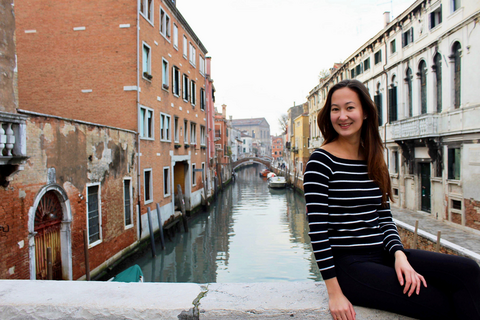Once you know which school you will be going to, it is important to start selecting your courses and obtaining course equivalencies. You need to look into courses early and have them assessed before you leave for your exchange so that you know what transfer credits you can expect to receive when you get back to Waterloo.
Here are some tips for picking courses for an exchange term:
- Create a course wish list based on program requirements and your personal interests.
- Understand the credit system of the host institution to determine how many courses to take
- Be flexible! Pick some top choices as well as some extra courses if any changes should occur.
- Reach out to your program advisor with any questions you may have or if you're uncertain about what courses to take
Number of Courses
Faculty of Science students are expected to enroll in the minimum number of courses required to be considered full-time status at the host school but you can decide to do fewer courses on exchange if the Host institutions allows it.
It is important to follow those guidelines as they are connected to the validity of your study visa.
You will still pay for a 2.5 unit course load at UW if you take fewer courses than required.
Course equivalencies
UW course equivalencies must be aquired prior to beginning your exchange term.
Non-Science students*: Please connect with your home faculty Exchange Representative and use this form to send requests for possible Science course equivalencies.
Science students*: Please contact the following advisors directly. Make sure you keep all the email records. After completion of your exchange term, please submit your course assessment results with the relevant correspondences to this Exchange Transfer Credit form. These records will be used for transfer credit process.
Make sure to include the following details when contacting advisors:
- Subject line: term abroad, host school- your last name (ie: F18, Leeds Exchange - Smith)
- Email Body
- Your full name with UW ID#
- Name of the host school (where the course is being offered)
- the host course title with code/number
- the course description, and URL link and/or syllabus (if available). Please provide as much detail as possible, as this betters your chance of receiving accurate approval
- suggested UW course match, and/or any other information that you feel may help with the assessment
Non-science Course Approval Requests
While Away on Exchange
While away on exchange, you will be enrolled in the placeholder course SCI 395/396/397 Science Study Abroad Program, for the term of the exchange. Once we receive your official transcript from your host school, the placeholder course will be replaced on your transcript by the transfer credits.
Students need to obtain at least the passing grade of the host university, or equivalent, in order to transfer the credit back to the University of Waterloo. Refer back to the Waterloo Passport school profile for any exceptions or special notes for this rule.
The grades you achieve in your exchange courses are not calculated in your UWaterloo average and will only show up on your UWaterloo transcript as credit (CR). Science will not transfer failed courses. However, you may need to submit your exchange transcripts along with your UWaterloo transcript for further education applications.
If you have any questions about course assessments, please contact the Science Exchange Advisor at science.exchange@uwaterloo.ca






